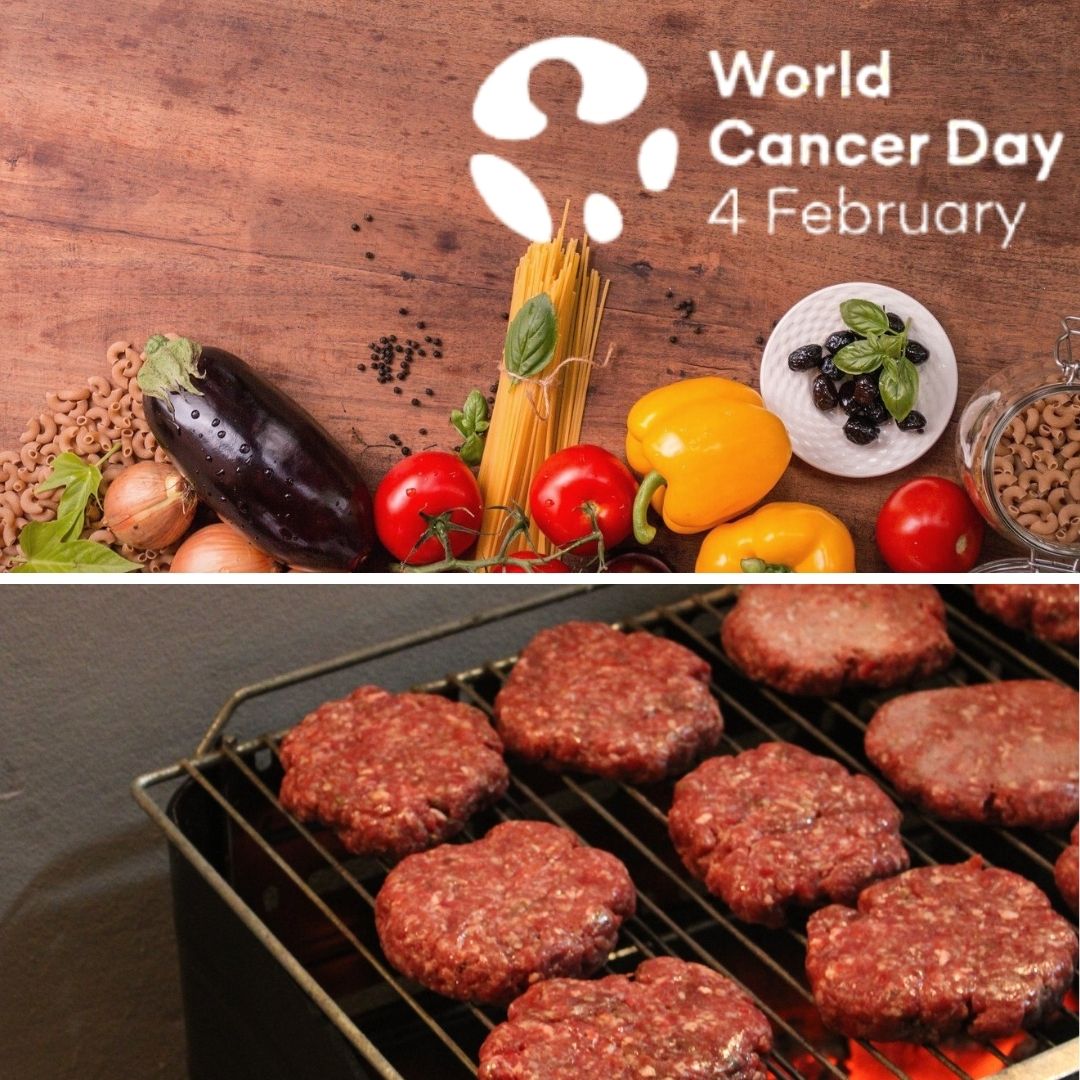World Cancer Day: Are Non-Vegetarians At High Risk Of Colorectal Cancer Than Others?
India, 4 Feb 2022 11:14 AM GMT | Updated 4 Feb 2022 11:28 AM GMT
Editor : Shiva Chaudhary |
A post-graduate in Journalism and Mass Communication with relevant skills, specialising in content editing & writing. I believe in the precise dissemination of information based on facts to the public.
Creatives : Devyani Madaik
A media enthusiast, Devyani believes in learning on the job and there is nothing off limits when it comes to work. Writing is her passion and she is always ready for a debate as well.
Reportedly, people with a vegetarian diet have a 22 percent lower risk of colorectal cancer than non-vegetarians. The risk was even lower for those who followed a pescovegetarian diet.
Annually, February 4 is observed as World Cancer Day, with the aim to raise awareness about one of the most dangerous non-communicable diseases that has afflicted humankind. The day is dedicated as a ray of hope, support and motivation for the patients and the families.
Not only cancer has wreaked havoc and adversely affect mental health, but it also remains the leading cause of death, accounting for nearly 10 million worldwide deaths in 2020.
Food & Cancer
The kind of food and its association with cancer risks have been talked about several times. Many have argued over the dietary choices of people, especially the non-vegetarians, claiming that such individuals live with a higher risk of cancer.
Netizens have argued over the non-vegetarian food causing intestinal cancer. Many also claimed that human bodies were made for vegetarian and plant-based foods.
The Development Of Colorectal Cancer
Colorectal cancer, known as colon, bowel or rectal cancer, starts in the parts of the large intestine (colon or rectum). The colon and rectum are part of the digestive system and is also called the gastrointestinal (GI) system.
Science states that the colon absorbs water and salt from the food matter after going through the small intestine. Then the waste matter goes into the rectum and is stored there until it passes through the anus. There are ring-shaped muscles around the anus that keeps stool from coming out until they relax during a bowel movement.
At times, there is a growth on the inner lining of the colon or rectum, which is known as polyps. Some polyps change into cancer over time, but not all, depending on the type of polyp. Once it grows, it starts spreading into the colon or rectum walls.
Reportedly, the signs and symptoms include blood in the stool, change in bowel movements, weight loss, fatigue, and so forth.
Non-Vegetarians At High Risk Than Vegetarians?
A study conducted by the researchers of California's Loma Linda University states that people with a vegetarian diet had a 22 percent lower risk of colorectal cancer than the non-vegetarians.
The risk was even lower for those who followed a pescovegetarian diet (vegetarian diet including fish), at about 43 percent. The study aimed to establish the association between the diet and the risks involved.
The researchers had studied the dietary habits of more than 70,000 people in the U.S. Colorectal cancer is the second leading cause of cancer death.
Which Diet Increases & Decreases Incidence Of Cancer?
Harvard Prof Dr Edward Giovannucci said that the dietary patterns of a vegetarian might decrease insulin and its growth factors, two hormones linked to colorectal cancer, compared to the traditional American diet, which primarily includes meat and other non-vegetarian items.
According to the report, there is a possibility that something in red meat or the way it is cooked encourages the growth of colorectal cancer. A double of it goes for the processed red meats.
Dr Giovannucci said that lower consumption of red meat would help reduce cancer risk. Eating vegetarian and plant foods provides extra beneficial nutrients, including folate, calcium, and fibre, that help against colorectal cancer.
Studies have shown that red and processed meats, including pork, beef, veal, lamb, bacon, ham, lunch meats, meat jerky, hot dogs, salami, etc., raised the most concern in terms of cancer risk. At the same time, vegetarian diets were associated with an overall lower incidence of colorectal cancers.
Also Read: Over 4,000 Criminal Charges Against Legislatures Pending In Courts, Including 5 Yrs-Old Cases
 All section
All section















